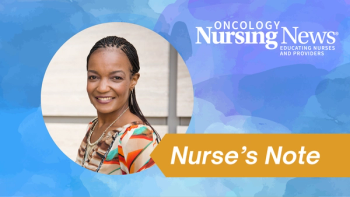
- August 2021
- Volume 15
- Issue 4
Stay Alert for Mental Health Issues Exacerbated by COVID-19 Pandemic

Psychological support services for patients and colleagues are critically needed and should be a vital component in postpandemic planning.
The World Health Organization defines mental health as “a state of well-being in which the individual realizes his or her own abilities, can cope with normal life stressors, can work productively and fruitfully, and can make a contribution to his or her community.”1 Nurses are aware that the risk of psychological effects from the COVID-19 pandemic is significant and that patients, families, and colleagues may respond with stress, anxiety, depression, insomnia, or, in worst cases, suicidal thoughts. Psychological support services for patients and colleagues are critically needed and should be a vital component in postpandemic planning.
The pandemic changed the daily lives of Americans. It has taken a toll on individuals’ mental health and created new barriers for those seeking mental health care. The world has confronted many new issues in the past 18 months, such as fear of contracting the coronavirus, fear of job loss, lack of child care options, and the devastating loss of loved ones due to COVID-19. All have had a crippling effect on the nation’s mental health.
As the world slowly starts to recover, a sense of isolation remains. Anxiety, depression, and insomnia linger, and loneliness, drug and alcohol use, and domestic violence are on the rise.2 Health care providers believe the pandemic may have an enormous impact on the mental health of the global population, leading to “an increase in cases of depression, suicide, and self-harm.”3
Such predictions are reflected in an analysis completed by the Kaiser Family Foundation from March 2021. In total, 46% of mothers surveyed stated that COVID-19 affected their mental health.4 School closures and lack of child care greatly affected parents with children younger than 18, many of whom were either working from home or leaving their children to work in the office during the pandemic.
The Kaiser Family Foundation COVID-19 data reveal disparity issues in health care. Minority groups, women, low-income communities, and the elderly often lack access to crucial health care services. According to the CDC,5 unmet mental health needs also increased significantly from 9.2% to 11.7%. The largest increases in unmet mental health needs were among adults aged 18 to 29 years (7.2 percentage points) and those with less than a high school education (4.3 percentage points).
Because oncology nurses are aware of vulnerable populations, it is important to carefully assess patients for depression, anxiety, and possible suicidal thoughts. Ask yourself: Do our patients have money for food, medications, parking, and gas? Are they working or has their compromised immunity kept them home? Do they speak of isolation, sadness, or signs of depression? Do they need referrals to a mental health provider? Do they need help with medication? Can cancer organizations help them with grants for gas and food?
As we take inventory of our patients, we also should look at coworkers, family, and ourselves to see how life is for everyone. The pandemic has affected us all and the world remains in crisis. As oncology nurses, we are poised to help.
References
1. Mental health: strengthening our response. World Health Organization. Updated March 30, 2021. Accessed July 9, 2021. https://www.who.int/news-room/fact-sheets/detail/mental-health-strengthening-our-response
2. Abramson A. How COVID-19 may increase domestic violence and child abuse. American Psychological Association. April 8, 2020. Accessed July 9, 2021. https://www.apa.org/topics/covid-19/domestic-violence-child-abuse
3. LiW, Yang Y, Liu ZH, et al. Progression of mental health services during the COVID-19 outbreak in China. Int J Biol Sci. 2020;16(10):1732-1738. doi: 10.7150/ijbs.45120
4. Kearney A, Hamel L, Brodie M. Mental health impact of the COVID-19 pandemic: an update. Kaiser Family Foundation. April 14, 2021. Accessed July 9, 2021. https://www.kff.org/coronavirus-covid-19/poll-finding/mental-health-impact-of-the-covid-19-pandemic/
5. Reduced access to care. CDC. Updated June 30, 2021. Accessed July 9, 2021. https://www.cdc.gov/nchs/covid19/pulse/reduced-access-to-care.htm
Articles in this issue
over 4 years ago
Number of Health Care Jobs Still Down From End of 2020over 4 years ago
The Evolving Role of the APRN in Oncology Careover 4 years ago
Oncology Nurses Are Champions Every Dayover 4 years ago
Continuing Education: August 2021Newsletter
Knowledge is power. Don’t miss the most recent breakthroughs in cancer care.































































































